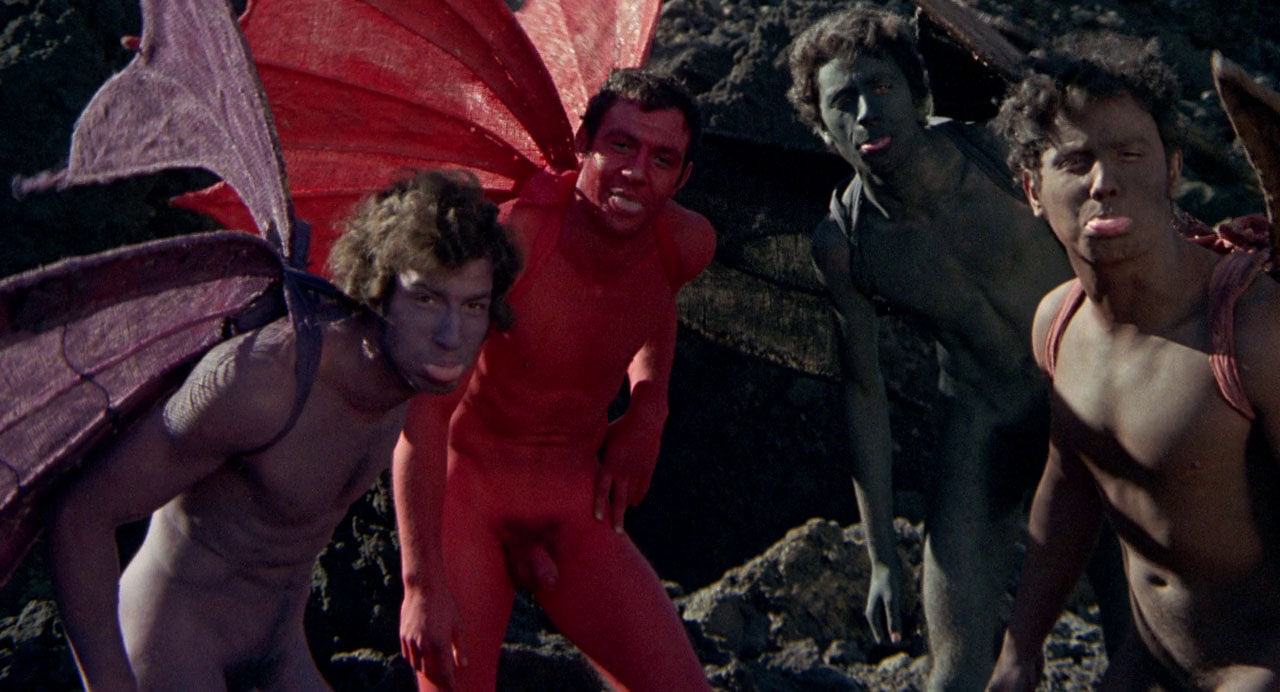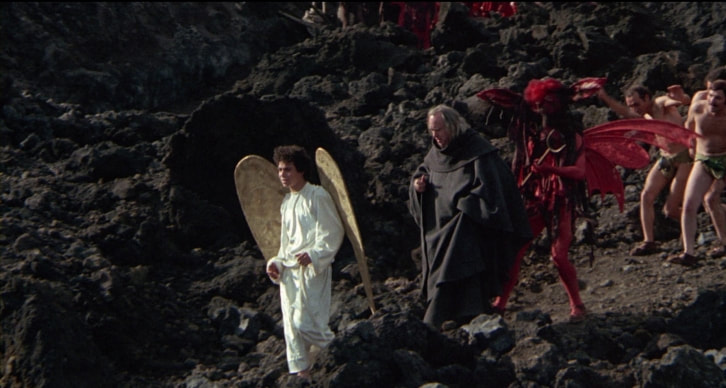|
By Sean Boelman
Today at the Berlin Film Festival, the Golden Bear was given to Carla Simón for her film Alcarràs, but at Berlinale in 1972, Pier Paolo Pasolini collected the award for his film The Canterbury Tales. A characteristically idiosyncratic and angry adaptation of Chaucer’s iconic work, it’s still very relevant fifty years later.
In the film, Pasolini liberally adapts eight of the twenty-four stories in Chaucer’s collection that take the form of stories being told by a group of pilgrims on a long journey. As always with Pasolini’s films, there is an abundance of sexuality and nudity, but it’s used in a way that is more than just titillation or shock. Many of Pasolini’s films explore the idea of morality and that is certainly the case with this. Pasolini and Chaucer make an exceptional match because both of them critique society very aggressively in their work. The tongue-in-cheek excess with which Pasolini approaches this story works quite well. Another interesting thing about Pasolini’s style is how he blends the elegant with the carnal, much like how Chaucer mixed the high and the low. It’s a very upscale, well-shot film, but some of the content that is being depicted is absolutely absurd and even sometimes blasphemous. It’s sure to upset some, but will earn a good deal of fans.
The second segment, based on The Friar’s Tale, is one of the more memorable in the film because it has the most direct approach. This tale of a tax collector and the devil has stood the test of time since when it was first written in the 1300s. And the way the dialogue is written in the film is just brilliant.
But unlike most anthologies, there isn’t a weak link to be found in Pasolini’s film. There are some segments that are on the short side, but even those have a very good reason for existing. Every section will leave the viewer either laughing or upset, allowing it to get its point across consistently and effectively. The Canterbury Tales is in the Criterion Collection as part of a box set containing Pasolini’s Trilogy of Life. And the Blu-Ray restoration is absolutely gorgeous. It’s rare that you see a film from the 1970s preserved and restored this well, but the folks at Criterion have set an exceptional standard and always live up to it. Pasolini’s The Canterbury Tales isn’t going to be everyone’s cup of tea, but it’s a truly unique film that deserves to be seen. Although the director’s more shocking work may get more of the attention, one shouldn’t ignore his other films.
0 Comments
Leave a Reply. |
The Snake HoleRetrospectives, opinion pieces, awards commentary, personal essays, and any other type of article that isn't a traditional review or interview. Archives
June 2024
Categories
All
|
|
|
disappointment media
Dedicated to unique and diverse perspectives on cinema! |


